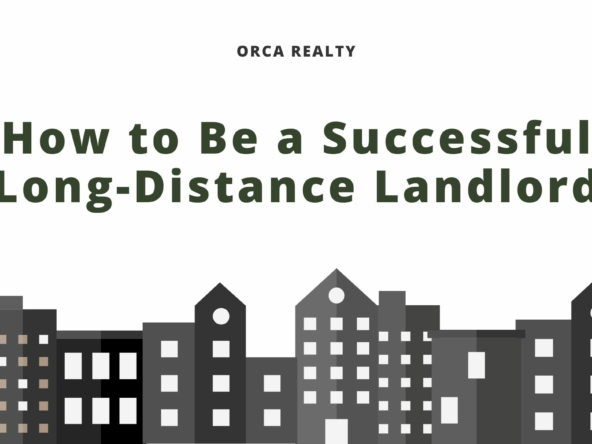Renting out a property in British Columbia can be a lucrative venture. Among other benefits, you may be able to generate a decent passive income for many years to come, which can help you pay off debt quickly, shore up your retirement benefits, or even increase your investment portfolio.
But just like any other type of investment or business, being a landlord has its risks. For instance, renting to a difficult tenant. The tenant may intentionally refuse to make rental payment, cause property damage, or violate all or some of the conditions in the rental agreement.
Luckily for you, British Columbia landlord-tenant law allows the eviction of such tenants. You won’t have to put up with tenants until the expiry of their lease, which may be many months away.
With that in mind, the tenant eviction process in British Columbia requires strict adherence to the law. That’s why it’s important to familiarize yourself with B.C. laws before renting out your property.
In today’s blog, we’ll walk you through the exact process you must follow when evicting a B.C. tenant.
What’s the Eviction Process in British Columbia?
Under British Columbia law, landlords have a right to evict tenants for certain legitimate reasons. You cannot try to evict tenants simply because you no longer like them. The eviction will not only fail, but you may also find yourself taking a plea in court yourself.

The following are grounds you can use to evict tenants from your B.C. rental property.
- Failure to pay rent. Tenants must make rental payment when it falls due. If they don’t, you can use that as a legitimate reason to evict them from your property.
- Violation of a lease term. Tenants in B.C. must abide by the terms of the lease agreement. If the tenant doesn’t, for instance by using the property for illegal activities, you can begin eviction proceedings against them.
- Renovation of the property. Are you looking to make major upgrades to the property? If you are, you may be able to terminate the tenant’s lease.
- Demolition of the property. If you are planning to demolish the property and build another rental or even convert it to something else, you can evict the tenant under B.C. laws.
- Damage to the property. A tenant has a duty under B.C. laws to care for their rented premises and not cause negligent property damage. If the tenant damages the property through carelessness, negligence, abuse, or misuse, you may be able to evict them. Landlords are encouraged to collect a security deposit to cover damages.
- Illegal subletting of the property. A tenant must request the landlord’s permission before subletting their property in B.C. If the tenant does it behind your back, you can use that as a reason to evict them.
- Relinquishing property ownership to a family member. Are you planning to relinquish the property to a family member as a form of inheritance? If you are, you can evict the tenant from the property.

Notice for Lease Termination with Legal Cause
This is the first step to evicting a tenant in British Columbia. You must send the tenant an appropriate eviction notice. You cannot just wake up one day and tell the tenant that they have to vacate the premises without proper notice.
Instead, you must draft a proper eviction notice and deliver it to the tenant through proper means. The following are the types of eviction notices a landlord must use to evict a tenant in B.C.
- 10-Day Notice to terminate a lease for nonpayment of rent or utilities. This will give the tenant up to 5 days to pay the rent due or utility bill in full or dispute the notice. If the tenant chooses not to make the payment or dispute the notice, you can proceed with the eviction by going to the Residential Tenancy Branch (RTB) to file an eviction application.
- 1-Month Notice to terminate the lease for a serious lease violation. Have the tenants caused excessive property damage or sublet the unit without permission? If so, you can serve them a one month eviction notice to vacate the property. The tenant will have only 10 days to dispute the notice. If they don’t and remain on the property, you can go to the RTB and file an eviction application.
- 2-Month Notice to terminate the lease for personal use. Do you want to use the property for your personal use? For example, to move into the property yourself, or to renovate it and then sell it. The tenants will have up to 20 days to dispute their eviction. If they don’t and continue living on the property, you can escalate the matter further by filing an application with the RTB.

- 60-Day Notice to terminate the lease for major renovations or demolition. The notice applies where the demolition or renovation is expected to make the unit uninhabitable. The tenants will have 60 days to lodge a dispute against the notice. But if the tenant doesn’t and continues to stay on the property, you can move to the RTB and file an eviction application.
The purpose of an eviction notice is to notify a tenant of a violation and what they must do within the notice period. You must serve the written notice either in person or by mail. The tenant must move out by 1 pm on the effective date of the notice.
Order of Possession
If the tenant fails to move out or dispute the notice, you can move to the RTB and file an Order of Possession. This will order the tenant to vacate the premises by a specific date and time.
If the tenant still refuses to leave after being served with the Order of Possession, you can move to the B.C. Supreme Court and obtain a writ of possession. The writ will allow you to hire a court bailiff to forcefully evict the tenant.
Bottom Line
A landlord must follow the B.C. eviction law when removing a tenant from their rental property. If you have more questions or need expert help in managing your B.C. tenants, then look no further than Orca Realty. Get in touch to learn more!




